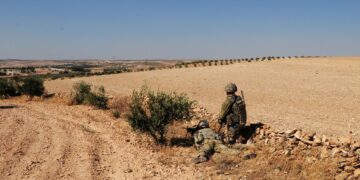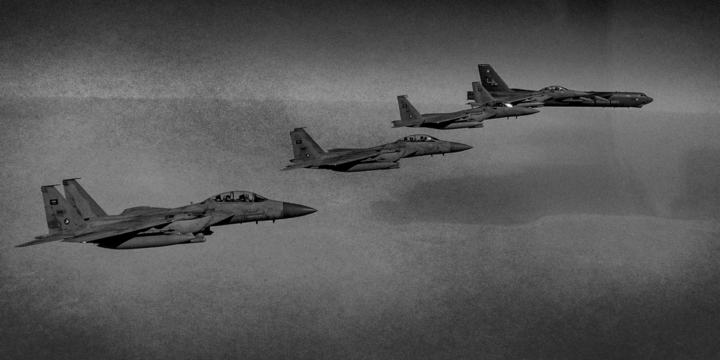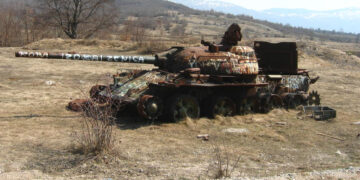October 1, 2024
Israel won’t find victory in Lebanon
By Rajan Menon

The killing of Hezbollah leader Hassan Nasrallah was a fearsome exhibition of Israeli intelligence and martial efficiency- as well as of Hezbollah complacency. But as tanks mass on the Lebanese border and the bombs fall on Beirut in what US officials believe will constitute a limited invasion, Israel is not marching towards a decisive victory, but further entanglement. And the incident captures Israel’s perennial incapacity in this conflict. In the year since October 7, Israel’s military has demonstrated its tremendous capacities for industrial destruction and technical assassination. It has simultaneously failed to achieve any strategic objectives – all while driving the region it calls home to the edge of war.
Nasrallah had been on Israel’s target list for years –they tried to bomb him on three occasions in 2006 alone. And he appears to have judged that Hezbollah could continue pressuring Israel to end its war in Gaza by firing rockets into its northern region without restraint. Israel’s retaliatory strikes on southern Lebanon far exceeded Hezbollah’s in number and lethality. But Nasrallah may have considered that a price worth paying. As in Gaza, he expected that the deaths and displacement of Lebanese civilians would provoke international condemnation and eventually compel Israel to end the war against Hamas, perhaps under pressure from a Biden administration worried about a wider war in the Middle East.
Hezbollah miscalculated – and Nasrallah paid with his life. First, Israel spurned Joe Biden’s proposal for a 21-day ceasefire. Next it set out to track and kill senior Hezbollah operatives, deploying its intelligence network to ruthless effect. Aman, Israel’s military intelligence, had worked diligently for at least a decade to acquire the ability to track the movements of Hezbollah’s top leaders and commanders by hacking their mobile phones and other devices, including those used by relatives. The scale of Israel’s subterfuge should have been evident to Hezbollah after the pager and walkie-talkie attacks on 18 and 19 September.
Yet, even after these losses, Hezbollah, which has always used stringent security measures to protect Nasrallah, inexplicably slipped up. Knowing that Israel has bunker-buster bombs (its own as well as those supplied by the US) it nevertheless allowed him to meet with senior Hezbollah’s commanders beneath its “central headquarters” in south Beirut. They should have realised the risks: on 30 July, an Israeli airstrike on Beirut had killed Fuad Shukr, Hezbollah’s leading military commander; the next day it killed Hamas’s political leader, Ismail Haniyeh – in Tehran.
Author

Rajan
Menon
Non-Resident Senior Fellow
More on Middle East

Featuring Dan Caldwell
December 17, 2024

By Charles Peña
December 16, 2024
Events on Israel




